Eisel calls for rider unity in cases of extreme weather
Team Sky veteran reveals he tried to neutralise Gent-Wevelgem
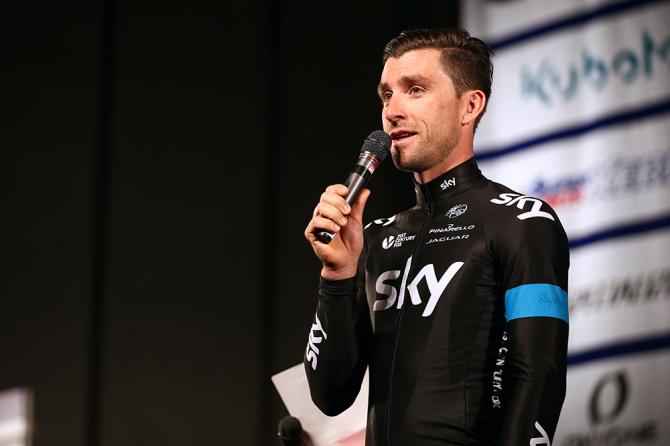
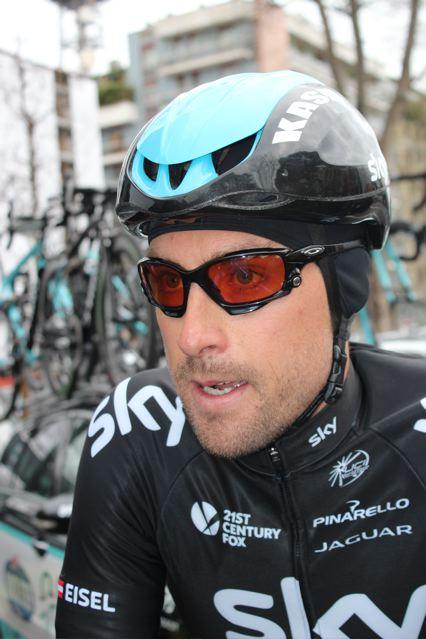
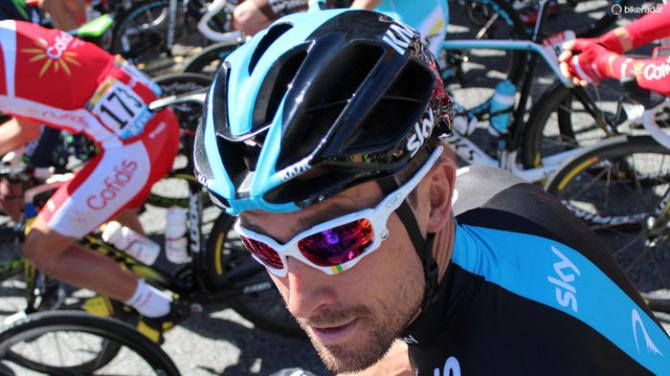
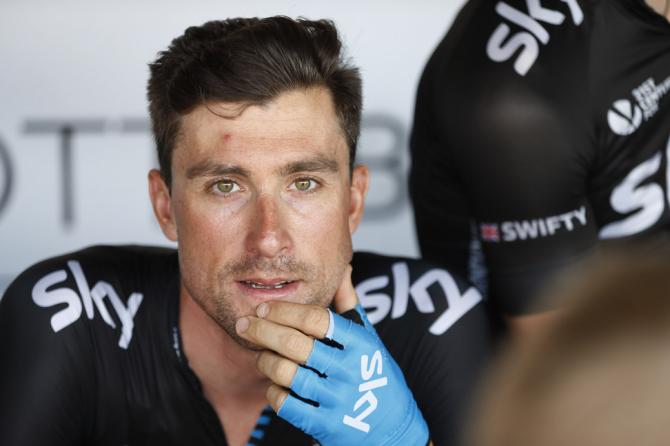
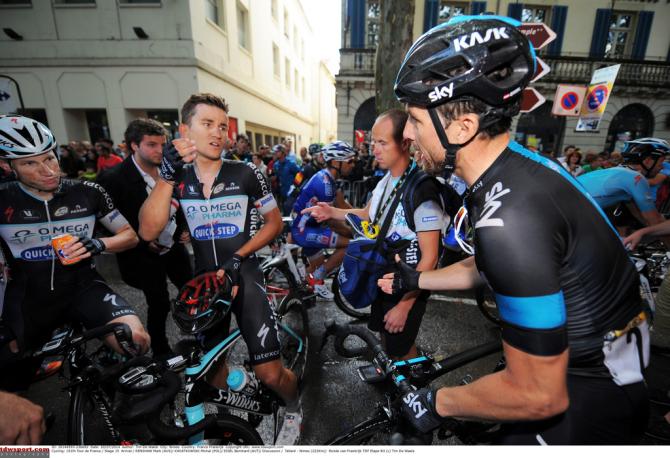
Bernhard Eisel has called on professional riders to show greater unity when faced with the cases of extreme weather in races.
The experienced Team Sky rider was speaking at the start of the Driedaagse De Panne-Koksijde, race that saw the first twelve kilometres neutralized, as high winds again buffeted the peloton. The riders faced a similar scenario in Sunday’s Gent-Wevelgem and despite a brief respite, as Eisel led a collective neutralization, the race went ahead, but was littered with crashes, abandonment, broken bones and further debate about rider safety and racing extreme weather conditions.
"I just don’t know why we have to risk our lives. It’s not the sponsors or the race organisers putting us under pressure, it’s just us, the riders. It’s always us," Eisel told Cyclingnews.
"We’re riding the bikes and we’re making the decisions and it’s not the pressure from team cars or sponsors, it’s us. Today we found the solution and we’re going to start the race a bit later and you have to make that call beforehand."
The peloton underwent a similar scenario in last month Tour of Oman, although instead of winds and rain they were racing in extreme heat and in 2010 the Tour de France was famously neutralized on the stage to Spa. The stage finish in the snow at Tirreno-Adriatico also sparked a huge debate. Eisel, who has been part of several UCI committees in his long career, acknowledged that the sport needed to protect its own investments and that while races needed security, the safety of the peloton still appears to be a secondary concern.
"There are millions of Euros out on the road when we race and that’s the capital of the teams and you can’t keep putting that in danger," he told Cyclingnews.
"We were riding people off the road (at Gent-Wevelgem) and I’m desperately sorry for Boasson Hagen and Velits who both broke their collarbones. Is that what people want to see? I don’t think that’s the right direction to take the sport and I can’t think of another sport that would go out there with 100 kilometre winds. We do it and if we complain then we’re ‘soft’ or ‘never won a race’. In any other sport there wouldn’t even be a discussion about it. Someone would have made a decision beforehand but the riders can’t be put into that risk."
Get The Leadout Newsletter
The latest race content, interviews, features, reviews and expert buying guides, direct to your inbox!
The Cyclistes Professionnels Associes (CPA) recently met in Paris to discuss an extreme weather protocol. The different stakeholders in the sport, co-ordinated by the UCI, also gathered in Milan to discuss the issue. It seems that recommendations could come into place by the end of the season but some race organisers, including Mauro Vegni of RCS Sport, are sceptical about the creation of a rigid extreme weather protocol. Organisers are legally responsible for safety during events but fear they could loose control of the races.
Eisel welcomed that the sport was considering improvement but added that any recommendation needed to stand up in a court of law.
"Something will be put in place but the decision needs to stand up in court, it can’t just be created by the UCI. It’s never black and white because if one person decides that it’s safe to race and there’s a crash, can they sue someone? You can’t just make up rules and that’s why it’s difficult. We all go out there and train and race in bad conditions but there’s always a point where you have to stop."
Yet whatever laws and checks are introduced, Eisel remained resolute that the authority and control should rest more with the athletes themselves. Co-ordinating and then dictating to 200 riders during a wind-swept race in Northern Belgian is easier said than done, however.
"On Sunday I tried to neutralise it and we did but then we had riders coming back from the third and fourth groups, who were already dropped but wanted to start racing again. If we’d kept racing they wouldn’t have come back but then the commissaries never came back to talk to us either. It would have been easy to make a call and just neutralize until the bottom of the first climb and then we would have been covered from the wind. There would have been cross-winds in the last 30 kilometres but by then the race would have split up."
"You can’t make everyone happy all the time but we should have a voice and it’s up to us. I understand and I want to represent my sponsor and you have teams racing on home roads and in home towns."
Daniel Benson was the Editor in Chief at Cyclingnews.com between 2008 and 2022. Based in the UK, he joined the Cyclingnews team in 2008 as the site's first UK-based Managing Editor. In that time, he reported on over a dozen editions of the Tour de France, several World Championships, the Tour Down Under, Spring Classics, and the London 2012 Olympic Games. With the help of the excellent editorial team, he ran the coverage on Cyclingnews and has interviewed leading figures in the sport including UCI Presidents and Tour de France winners.
